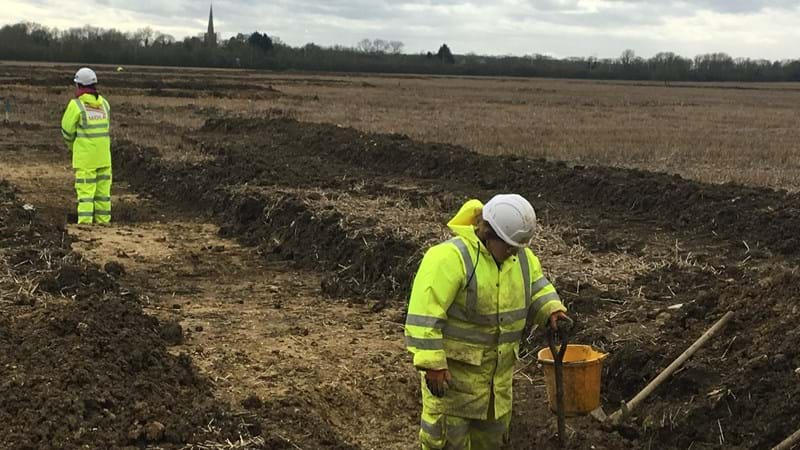Keeping the A428 Black Cat to Caxton Gibbet scheme on track
Published
28 Aug 2020
Our specialists and contractors have been working hard to complete surveys during the COVID-19 outbreak to keep the A428 project on schedule.

Share this article
As the scheme is considered an essential infrastructure project, Highways England was given permission to continue our field work during lockdown, while following government guidelines.
Our ecological survey work and archaeological trial trenching will help us to develop our Development Consent Order (DCO), the planning application needed for this type of infrastructure project. The DCO is due to be submitted later this year and the information we gather now will provide data for some of the required documents, such as the Environmental Impact Assessment and method statements.
Some of our surveys can only be carried out during seasonal windows, such as those that monitor bats and breeding birds, and it’s important that we carry these out at the right time of year to get accurate results. The results of our surveys will determine what species exist in the scheme area and the types of mitigation that we need to put in place to protect or relocate them.
They also help us understand which areas have no archaeological features, so that we know where construction can start without any further investigative works.
By continuing with our surveys throughout lockdown, we’ll be able to stick to our timeline to start construction in 2022/23.
What measures are we taking?
The ecology and archaeology teams have been following guidance from professional bodies, to allow us to continue our work as safely as possible.
Guidance from the Chartered Institute of Ecology and Environmental Management, Institute for Archaeology and the Federation of Archaeologists has been used to create strict working methods to keep our team, contractors and the public safe.
Some of these measures include:
- advance site risk assessments to consider COVID-19 risks
- washing or sanitising hands and equipment before travel and arrival on site, as well as at break times
- avoiding public transport unless absolutely necessary
- travelling to site by car either independently, or in bubbles where experts live in the same household
- cleaning vehicles between individual uses
- not sharing tools or Personal Protective Equipment (PPE)
- where possible, reducing the number of surveyors needed to meet face to face on site by using digital communication instead
- keeping two metres apart during fieldwork (within our team and from the public), except in an emergency
- avoiding site briefings by using email and moving towards online meetings wherever possible
- reducing movement of staff between sites
- not working in areas where social distancing cannot be maintained
Our working methods are reviewed regularly to ensure we are still following best practice during this period of rapid change.
To stay updated on the scheme, we now have dedicated social media pages where you can follow our progress:
Facebook - @A428BlackCat
Twitter - @A428Cat
